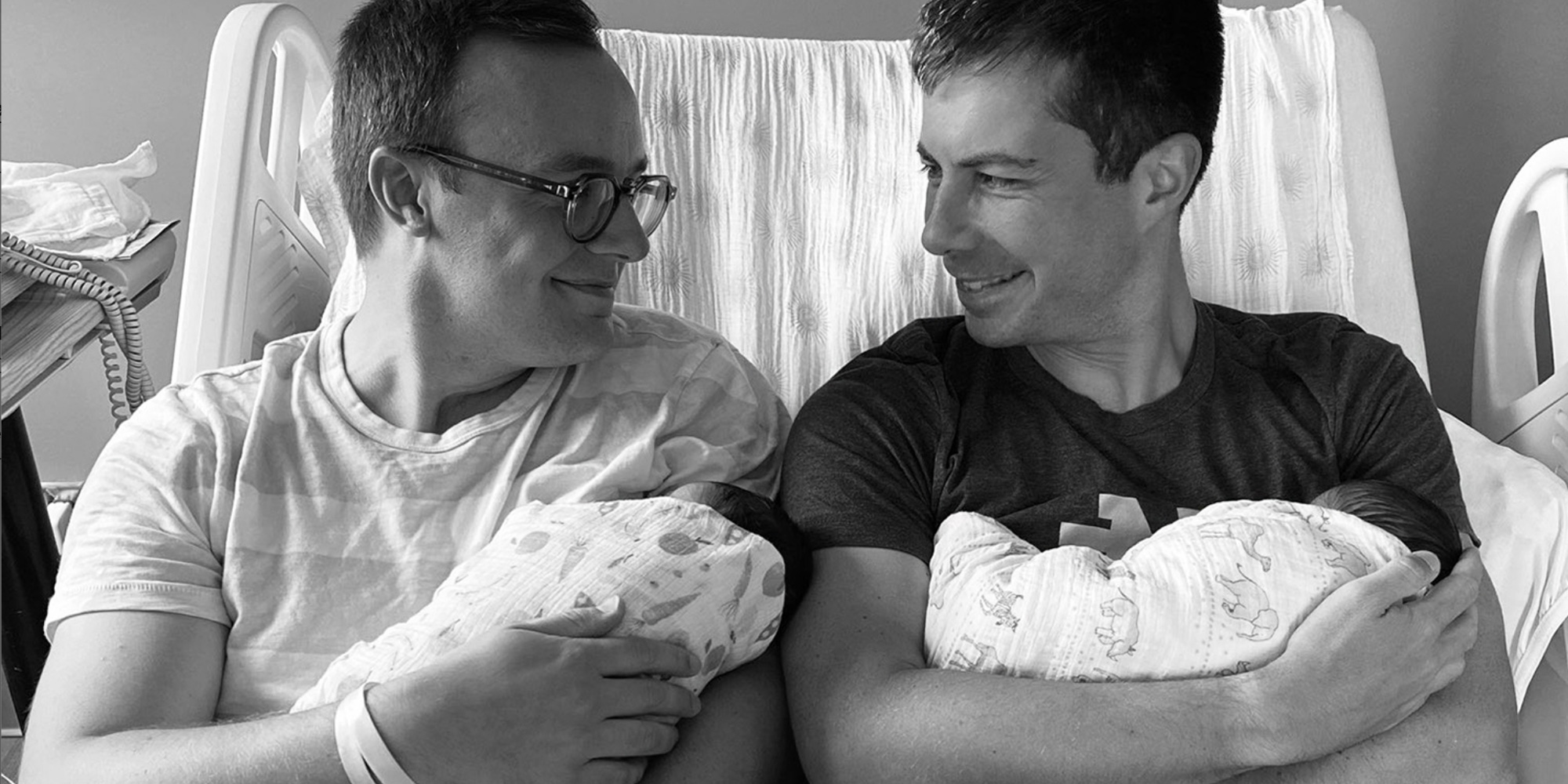My paternity leaves were some of the most cherished weeks of my life. While far too short, I have crystal-clear memories of hours spent rocking my infant daughters in a sling while I prepared dinner, going for long walks around our neighborhood and pointing out all the passing dogs and birds, laying on the couch while they napped on my chest like a tiny snuffling blanket.
It was distressing, then, to see Transportation Secretary Pete Buttigieg come under fire for taking four full weeks and a few partial weeks of paternity leave. Beyond the disgusting homophobic attacks, many pundits extended criticism to the entire idea of robust paternity leave; conservative Matt Walsh tweeted that other than assisting the mother, “The thing about paternity leave is there isn’t much for dad to do when the baby is a newborn, especially if mom is breastfeeding.” (This line feels like it comes up every so often; you may recall the minor kerfuffles that happen when professional athletes have the temerity to take two or three days off to be with their new family.)
While plenty of commentators have hit back with strong rebuttals, I want to talk about an underappreciated aspect of paternity leave: the positive benefits for young children.
In an important study published in 2018, sociologists Richard Petts and Chris Knoester looked at the impacts of paternity leave on father engagement not only when the baby is a newborn, but throughout the child’s early life. Petts and Knoester write that the body of literature around paternity leave shows:
“The more time that fathers are able to take off for paternity leave, the more time they would have to gain parenting experience and bond with their child. The process of developing an attachment to one’s child may have a lasting influence as father involvement early in a child’s life is a key predictor of later engagement. Thus, paternity leave-taking may lead to increased father engagement in infancy, and this higher level of engagement may persist throughout a child’s life.
…Similarly, U.S. studies suggest that fathers who take paternity leave are more likely to change diapers, prepare food for and help dress infant children; they also take young children to the doctor, read to 2–3 year old children more frequently, and have higher overall levels of involvement with one- and five-year- old children than fathers who do not take leave.”
Petts and Knoester’s 2018 study extended this previous understanding by concluding that the length of paternity leave is quite important. They “found results that consistently showed that longer periods of paternity leave are associated with more frequent engagement in developmental tasks and caretaking when children were infants, and with trajectories of more frequent engagement in developmental tasks and caretaking during the first few years of a child’s life.”
This degree of father engagement is highly consequential. Separate research suggests that father involvement plays a direct and positive role in influencing school readiness – – so since paternity leave leads to more father involvement, the linkage is clear. (Given the homophobic overtones of the current controversy, it’s worth taking pains to note that children thrive equally well in same-sex couples of all genders; these studies specifically looked at families in which a father was present.)
The other place that paternity leave comes into play for child outcomes is around family stability. As the New York Times reported, a different Petts and Knoester study “found that even relatively short periods of paternity leave caused couples’ divorce risk to drop and to remain significantly lower for as many as six years to come, even as their children reached school age.” Unsurprisingly, research also finds that divorce (while of course sometimes necessary) has on average substantially negative effects on children’s school readiness and later academic performance.
Thus, instead of sniping at Buttigieg, we should be celebrating his example and pushing to make extended paternity leave a norm. Not only is it good for our families, it is good for our children and our nation’s early learning goals.




